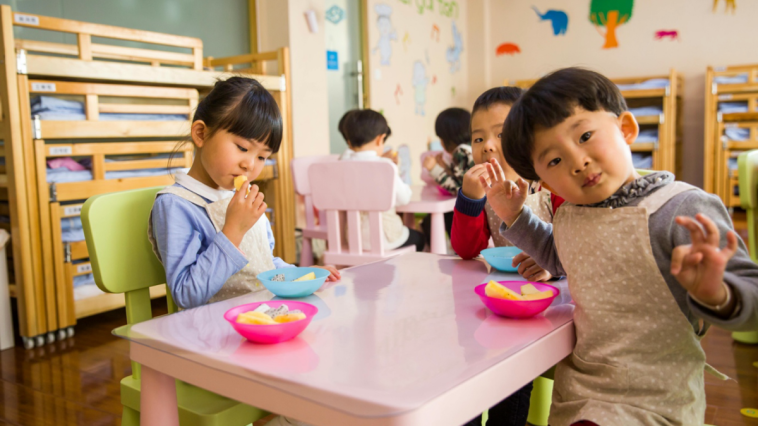As you navigate the complex landscape of Singapore’s property market, you’re likely to stumble upon a peculiar phenomenon – schools have a profound impact on property values. It’s a relationship that’s both intuitive and counterintuitive at the same time. On one hand, it makes sense that good schools would attract families and drive up property prices.
But on the other hand, it’s surprising how significantly schools can sway your decision to buy or rent a property. In this article, we’ll explore into the intricacies of this relationship, exploring how schools shape property values in Singapore and what it means for you, the savvy investor or homeowner.
The Singaporean Education System
As you explore into the world of Singapore’s education system, you’ll discover a complex yet fascinating landscape that has been carefully crafted to produce some of the world’s most talented and skilled individuals.
Overview of the education landscape
Around 370,000 students attend Singapore’s public schools, with another 70,000 enrolled in private institutions. The education system is divided into four main stages: primary education (ages 7-12), secondary education (ages 13-16), post-secondary education (ages 17-18), and tertiary education (ages 19 and above).
You’ll notice that the system is highly centralized, with the Ministry of Education playing a significant role in shaping curriculum, assessments, and policies.
Another characteristic of Singapore’s education system is its emphasis on academic achievement. You’ll find that students are streamed into different tracks based on their performance in national exams, such as the Primary School Leaving Examination (PSLE) and the GCE O-Level examination.
This tracking system allows students to specialize in subjects that align with their strengths and interests, ultimately preparing them for their future careers.
Importance of schools in Singaporean society
Above and beyond mere academic instruction, schools in Singapore play a vital role in shaping the country’s social fabric. You’ll find that schools are often seen as community hubs, providing a space for socialization, character development, and civic engagement.
Another critical function of schools is their role in promoting social mobility. You’ll notice that education is highly valued in Singaporean culture, and schools are seen as a key driver of upward mobility. As such, schools are expected to provide equal opportunities for students from all backgrounds, regardless of their socio-economic status or family background.
For instance, schools in Singapore often provide additional support for students from disadvantaged backgrounds, such as financial assistance, mentorship programs, and remedial classes. This commitment to social equity ensures that every student has an equal chance to succeed, regardless of their starting point in life.
The Impact of Schools on Property Values
It’s no secret that schools play a significant role in shaping the desirability of a neighborhood, and subsequently, its property values. In Singapore, where education is highly valued, the proximity and reputation of schools can make or break the appeal of a property.
How school proximity affects property prices
On the surface, it may seem obvious that properties near good schools would be more valuable. But the extent to which school proximity impacts property prices is quite astonishing. You see, parents are willing to pay a premium to live near top-performing schools, not just for the convenience but also for the perceived benefits it brings to their children’s education.
According to a study, properties within a 1-kilometer radius of a top school in Singapore can command a price premium of up to 10% compared to similar properties farther away. This is the reason why Grand Dunman can command such a premium, which is located within 1-km to Kong Hwa School, one of the top primary school in the East.
On top of that, the proximity to schools also affects the rental yield of properties. Landlords can charge higher rents to tenants who are willing to pay extra to be close to good schools. This, in turn, increases the attractiveness of the property to investors, driving up its value even further.
The role of school reputation in property valuation
One of the most significant factors influencing property values in Singapore is the reputation of nearby schools. You may think that it’s just about the proximity, but the quality of education and the school’s reputation play a much more critical role. A good school can increase property values by as much as 30%, while a poorly performing school can have the opposite effect.
A closer look at the data reveals that the reputation of a school is often tied to its academic performance, extracurricular activities, and the quality of its teachers. Parents are willing to pay more to live near schools with a strong track record of producing well-rounded students who excel academically.
Moreover, the reputation of a school can also impact the resale value of properties, making it easier to sell or rent out your property in the future.
Factors Influencing the Relationship
Little do you know that the connection between schools and property values in Singapore is influenced by a multitude of factors. These factors can either strengthen or weaken the relationship, making it crucial to understand their impact.
Some of the key factors influencing the relationship include:
- Demographic changes and their effects
- Government policies and initiatives
- Socio-economic factors
- Accessibility and transportation
- Quality of education
Knowing these factors can help you make informed decisions when it comes to investing in property or choosing the right school for your child.
Demographic changes and their effects
Their impact on the relationship between schools and property values cannot be overstated. Changes in demographics, such as an aging population or an influx of young families, can significantly affect the demand for certain types of properties and schools.
For instance, areas with high concentrations of elderly residents may see a decrease in demand for properties near schools, while areas with young families such as Tampines may experience an increase in demand. This is one of the factor why Parktown Residence is so highly anticipated as it is within 1-km to not one but three popular neighbourhood primary schools.
Additionally, demographic changes can also influence the type of schools that are in demand. For example, areas with a high proportion of expatriates may see a greater demand for international schools, which can in turn affect property values.
Implications and Future Directions
Once again, the intricate relationship between schools and property values in Singapore raises important questions about the future of education and urban planning. As you consider the implications of this connection, it’s important to think critically about the potential consequences and opportunities that arise from it.
Opportunities for innovation in education and real estate
On the cusp of this new era, you have a unique opportunity to reimagine the way education and real estate intersect. By embracing innovative technologies, pedagogies, and design principles, you can create learning environments that are more adaptive, inclusive, and effective. A key aspect of this innovation will involve the integration of data analytics and artificial intelligence to optimize school facilities, curricula, and teaching methods.
For example, AI-powered tools could help identify areas where students need extra support, allowing teachers to tailor their instruction more effectively. Similarly, data-driven insights could inform the design of school buildings, ensuring that they are more energy-efficient, accessible, and conducive to collaborative learning. As you look to the future, it’s clear that the interplay between schools and property values will continue to shape the fabric of Singapore’s communities. By embracing this complexity and seizing opportunities for innovation, you can help create a brighter, more sustainable future for generations to come.
Summing up
To wrap up, as you’ve seen, the future of education in Singapore is intricately tied to the property market. The quality of schools in a particular area has a profound impact on property values, making it a crucial consideration for homebuyers and investors alike.
You may have noticed that top-performing schools are often clustered in affluent neighborhoods, creating a self-reinforcing cycle of desirability and exclusivity. This phenomenon raises important questions about accessibility and equity in education, as well as the role of policymakers in mitigating the effects of gentrification.
As you look to the future, it’s clear that the relationship between schools and property values will continue to evolve. With the Singaporean government’s emphasis on creating more inclusive and diverse communities, you can expect to see innovative solutions emerge that address the complex interplay between education, housing, and socioeconomic status.
Whether you’re a parent, investor, or simply a curious observer, understanding the dynamics at play will be important for navigating the shifting landscape of Singapore’s education system and property market. By recognizing the intricate connections between these two spheres, you’ll be better equipped to make informed decisions that benefit not just yourself, but the community at large.




